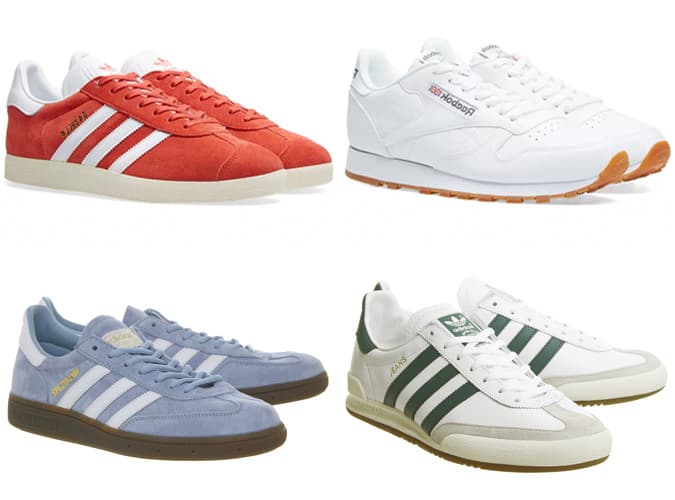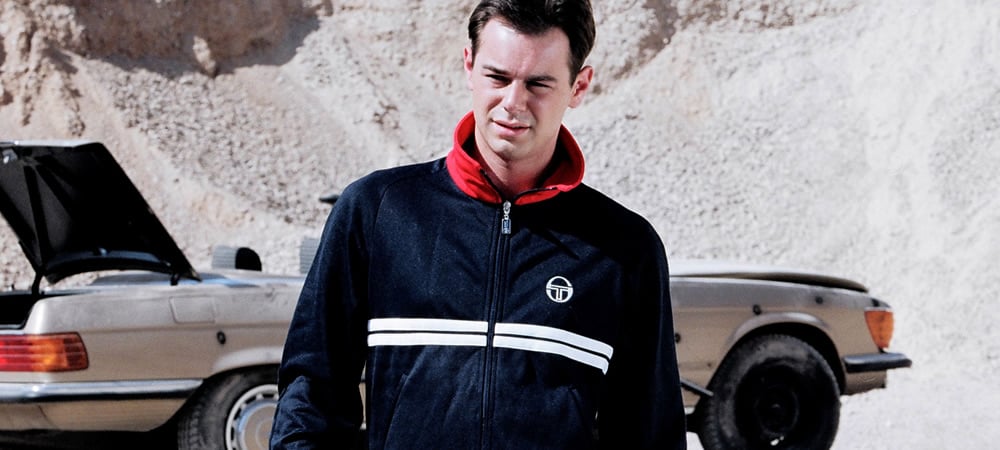
We independently evaluate all recommended products and services. Any products or services put forward appear in no particular order. if you click on links we provide, we may receive compensation.
Ordinarily, getting kitted out head to toe in your most expensive clothing might be something you’d reserve for a date, a wedding or a black-tie event. However, if you were a devotee of terrace fashion, a matchday trip to the pub would be the only excuse you’d need to get yourself suited and booted.
Of course, by “suit” we mean a grand’s worth of designer Italian outerwear and by “boots” we’re referring to hen’s-teeth-rare Adidas trainers. Because the terrace lads’ definition of finery is a far cry from your standard Savile Row tailoring.
Followers of this subcultural movement refer to themselves as “casuals”. To the layman, they’re football fans who choose to clad themselves in designer “casual” clothing rather than their team’s colours. In the early days of the late 1970s, this was done in order to more easily infiltrate rival firms for fights – something that has seen the term become synonymous with hooliganism and thuggery.
But not all casuals are or were hellbent on weekend, lager-fuelled barbarity. For many, their love for the scene revolves around the fashion and music. Scratch below the surface and you’ll find there’s more to terrace fashion than just flying fists and Stone Island logos. In fact, the scene has influenced modern menswear in ways you probably weren’t even aware of.
The Rise Of The Casuals
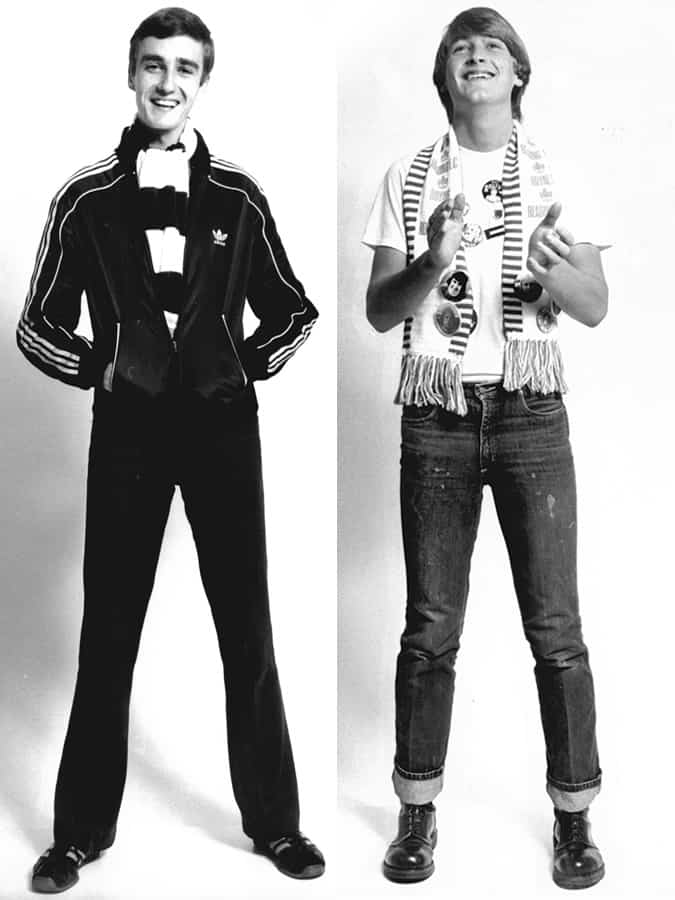
Terrace fashion has its roots in the late 1970s. The success of English football clubs saw young fans travelling overseas to Europe for matches and developing a taste for new and exotic sportswear in the process. They brought it back home, others saw and wanted it, and so the cycle began. This was really the beginning of hype sportswear.
The subculture developed its own uniform and a selection of core brands. “Farah, Lois, Diadora, Nike, Adidas, Puma, Sergio Tacchini, Fila, Ellesse, Cerutti 1881, Australian, Lacoste, Lyle and Scott, Pringle, Kappa,” says Neil Primett, owner of 80s Casual Classics, a dedicated casual shop that has supplied wardrobe to films such as The Firm, This Is England and The Business. “These are the labels that made up the outfit of your typical 1979-to-1985 casual.
“Exactly where it started is more difficult to say. I could not pin this on any one place.”
Many credit Manchester as the birthplace of terrace fashion, others namecheck Liverpool. Wherever it began, one thing was for certain: this new way of dressing was offering young, working-class men a space where they could engage with fashion.
“Then we got into one-upmanship,” says Primett. “It was all about who had the best and the latest gear. You might have started out wanting the best Patrick football boots to be like the best footballer. Next thing you know you were after the latest must-have Patrick cagoule. And so it continued.”
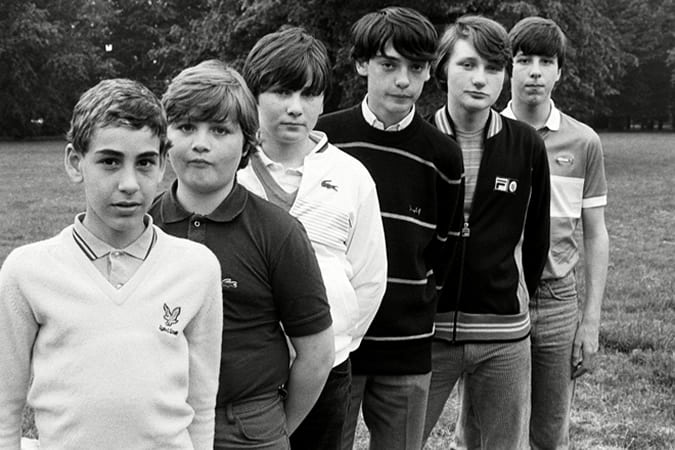
The Evolution Of Terrace Fashion
The one-upmanship meant that terrace fashion evolved quickly, especially during the 80s. “The style changed rapidly and dramatically,” recalls Gary Aspden, a footwear designer and brand consultant for Adidas, and cult figure in terrace fashion. “It went from skin-tight jeans to flares to a tapered fit to a 501 fit to a loose, baggy fit – all in the space of a decade. It would literally change overnight. It was street fashion in the truest sense. You had to be part of it to keep up with it.”
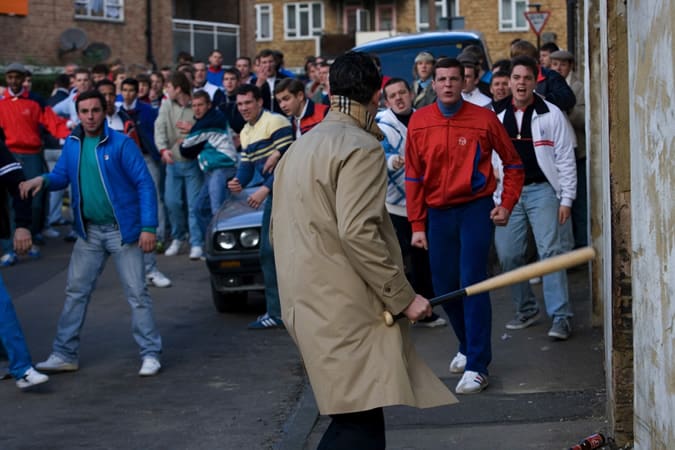
During the 90s, cornerstone brands such as Sergio Tacchini and Fila gave way to the likes of Stone Island and CP Company. High-end names, such as Prada, Burberry, Aquascutum and Gucci also began to creep into the stands as casuals continued in their bid to outdo each other.
However, the constant peacocking wasn’t to last. The advent of new technology and online auctions saw previously rare items becoming more easily obtainable and the casual look plateaued. “The playing field is so different to how it was when I was a teenager,” says Aspden. “And that’s down to the internet.
“Nowadays casual style has a much more set look and whilst it still exists there isn’t the same urgency in the style one-upmanship that used to go on. The only two brands I can think of that had the longevity to maintain their relevance right the way through were Adidas and Lacoste.”

Terrace Fashion In Modern Menswear
Today, terrace fashion has swaggered out of the stands and into the mainstream. Brands that once had heavy links to football violence have shaken off those negative connotations and become more accessible. It’s the result of the casual look moving beyond its sports-tribe roots and becoming a lifestyle for style-conscious men.
It’s something that Aspden recognises from his work on Adidas’ Spezial line – a collection of clothing that has been bringing casual style to a wider audience. “With Spezial we acknowledged that there is a hardcore Adidas-dedicated audience here in the UK and across Northern Europe that has its roots in casual style and bears little relation the sneakerhead-hype-basketball-inspired sportswear culture that permeates the US.”
Music has also had a huge part to play in opening the casual uniform up to a wider audience. The advent of acid house in the late 1980s and early 1990s brought sportier styles and big logos into the spotlight, while artists such as Liam Gallagher, the Stone Roses and Kasabian have all played a part in keeping the style alive today.
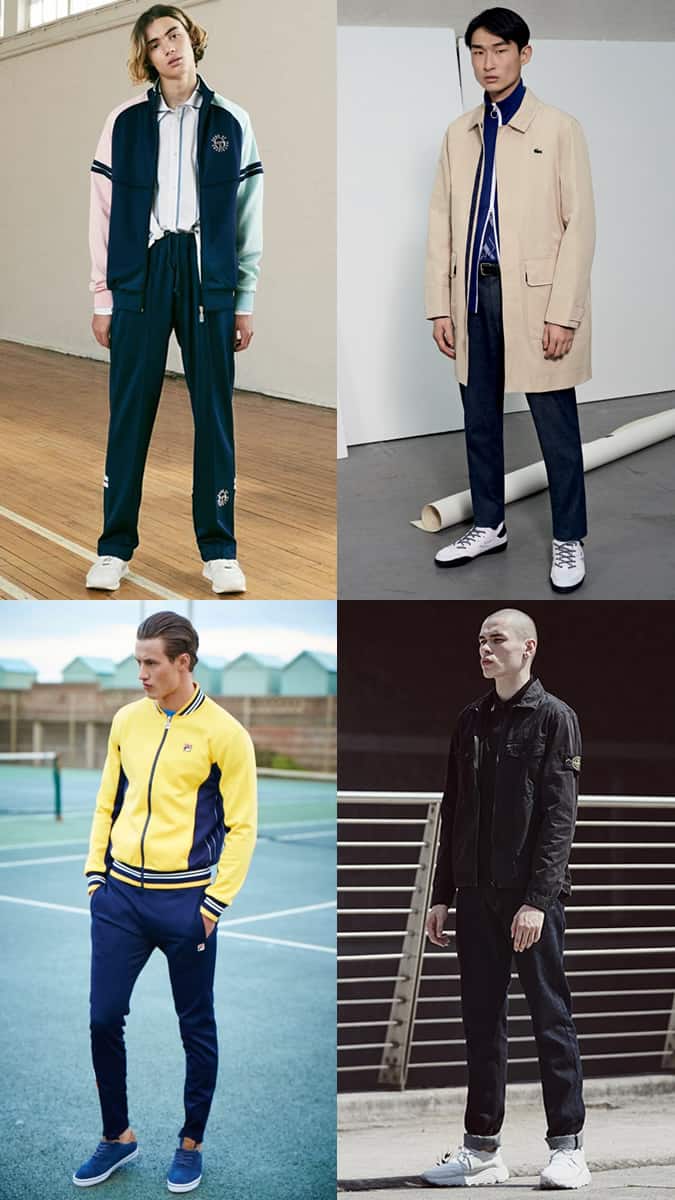
Terrace Trainer Culture
The word “sneakerhead” probably isn’t something you’d tend to associate with the rain-battered terraces of English football clubs, but trainer culture is rife in this country thanks to the casuals. However, while traditional sneaker enthusiasts fawn over all things Nike and New Balance, for the terrace fashion set there’s only one brand worth striving for.
“Adidas has always made the best football products and for me that is at the root of it,” says Aspden. “Where I grew up, when the whole terrace thing kicked off in the late 1970s, it was young kids that adopted the brand’s football shoes as a fashion staple.”
Most of Aspden’s generation were introduced to Adidas footwear through football shoes like the Kick, the Mamba, the Bamba and the Samba. As the 1980s rolled on, all manner of Adidas styles became popular – not just football-inspired models. “We were wearing everything from tennis, running, training, indoor and even the leisure shoes that Adidas made at that time,” Aspden remembers. “There was also a huge subculture of kids travelling over to Switzerland, Austria and Germany to get hold of Adidas trainers that weren’t available in the UK.”
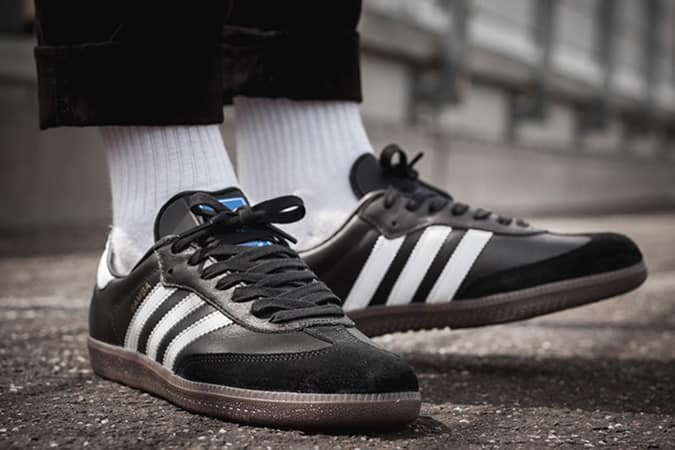
After spotting the demand, savvy retailers such as Liverpool’s Wade Smith and Manchester’s Oasis (not the band) circumvented the company and began importing Adidas shoes themselves. This opened things up to a wider audience and made copping rare trainers more manageable for UK enthusiasts, further cementing the brand with the three stripes as the go-to for casual footwear.
“I think most terrace lads like the simplicity of that Adidas aesthetic from the 70s and 80s,” Aspden adds. “Adidas footwear is synonymous with casual style in the same way that Doc Martens are synonymous with skinheads.”
It’s a trend as evergreen as Converse All-Stars, but even so, the modern obsession with retro sneakers has brought 80s and 90s styles back into fashion.
Key Pieces
The typical terracewear aficionado’s wardrobe will be packed to bursting point with expensive coats, technical jackets and rare trainers. However, the bulk of it can be divided up into seven distinct categories. These are the key styles you need to know about.

Mac
If you’ve ever been unfortunate enough to have seen Green Street, there are likely two things you remember about Charlie Hunnam’s football-firm-boss character. Number one: his shockingly badly acted Cockney accent. And number two: his pristine, Stone Island trench coat.
In the 1980s, casuals made a move toward British luxury brands, the two main ones being Burberry and Aquascutum. These two labels are known for producing some of the finest long-length outerwear and it wasn’t long before beige, knee-length coats were flooding football grounds.
In more recent years, the style has lost ground to more technical styles but still remains a cornerstone of casual culture.

Hooded Jacket
The north-west of England is arguably the spiritual home of terrace fashion. Rainy, outerwear-loving cities like Manchester and Liverpool gave rise to the casuals and as such, the scene’s affinity for anoraks and cagoules is deep rooted.
Terrace fashion is about two key things: who’s go the best clobber, and keeping the elements at bay while watching the match. This set of requirements has seen high-quality, high-end hooded jackets become the defining garment of the scene. Brands like Stone Island and CP Company have become the gold standards, but sailing and outdoor brands such as Henri Lloyd, Fjallraven and Paul & Shark are also popular.
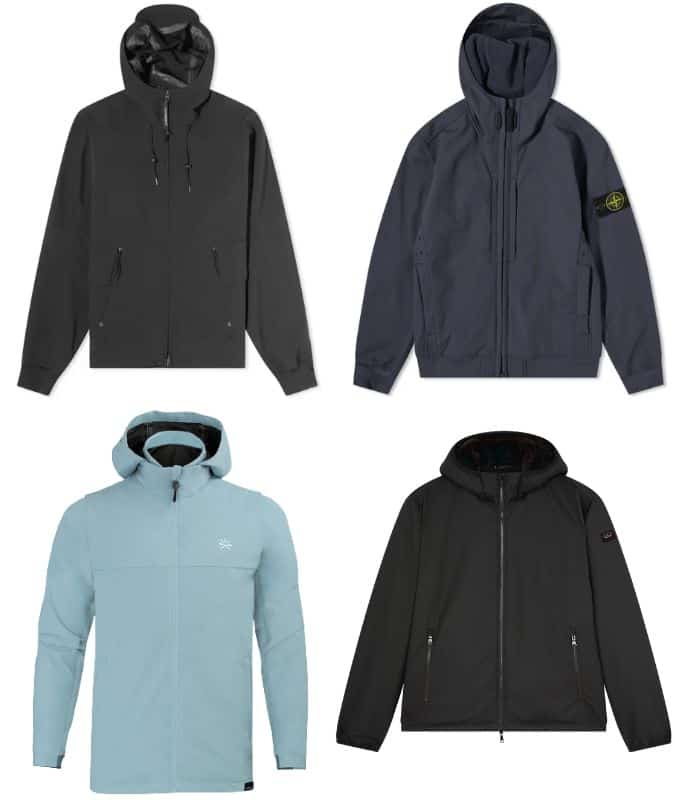
Track Jacket
Before all the Aquascutum trench coats and CP Company goggle jackets, the humble track jacket reigned supreme in the casual’s wardrobe. This sporty, retro piece is still a common sight at matches today, but it was when fans started bringing tracksuits back from trips to Europe in the late 1970s that it really go a foothold in the subculture.
Italian brands like Sergio Tacchini, Ellesse and Fila soon came to define the look. The fact that these names weren’t available in the UK at the time only made them all the more appealing to young football fans keen to outdo one another in the fashion stakes.

Jeans
While corduroy trousers and even flares have enjoyed waves of popularity in terrace fashion, it’s straight-leg denim that has prevailed. Ever since the early days in Liverpool, jeans have ruled the roost and as the casual look continues to evolve, so does its followers’ taste in denim.
Traditionally, mid-wash and stonewash fabric from Emporio Armani was probably the most widely worn – almost an afterthought to an expensive jacket and nice pair of trainers. However, today’s terrace-fashion aficionados are more clued up on their weights and wefts, often opting for heavy, raw denim from dedicated brands like Edwin and Nudie.

Scarf
A multipurpose accessory, useful for both keeping the chill off on wintery terraces and obscuring faces before and after a post-match scuffle, the scarf is deeply entrenched into the casual way of life.
Often worn to cover the nose and mouth, checks and tartans are what it’s all about. British brands, such as Burberry, Aquascutum and Barbour are all popular choices and are still a common sight at football grounds today.

Cap
For those casuals intent on fighting, baseball caps have always provided another handy means of keeping their faces hidden from CCTV cameras and police patrols. This practical use has seen the cap permeate terrace fashion making it the headwear of choice for for both violent and peaceful terrace lads alike.
Again, Burberry is a favourite brand, due to its luxury price tag and distinctive all-over check branding. Meanwhile, Polo Ralph Lauren and Lacoste are solid options at the lower end of the price spectrum.

Trainers
Terrace fashion is probably at least fifty per cent about the trainers. Having the most sought-after kicks is a huge part of causal culture and although the Reebok Classic is a staple option, it’s Adidas that rules the roost as far as footwear is concerned.
Classics like the Gazelle and the Samba have remained popular over the years. But during the early years, young fans were often travelling back and forth to Germany to pick up rare models that couldn’t be found in the UK.
